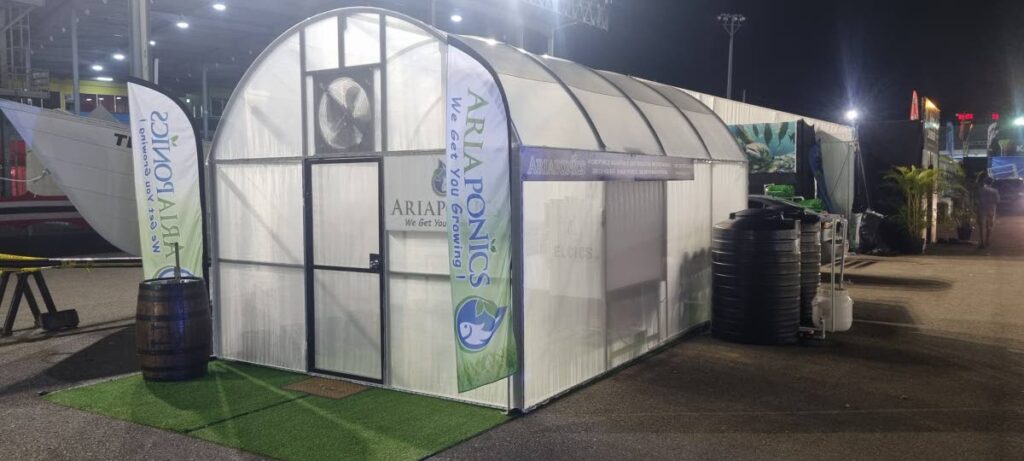SME group: We face cashflow issues when government slow to pay

ALTHOUGH small and medium-sized enterprises (SMEs) contribute almost a third of the country’s gross domestic product (GDP), the sector is facing mounting financial strains owing to government delays in paying for goods and services.
The TT Association of Small and Medium Enterprises (TTASME) says payment delays have disrupted cash flows for many businesses, with some even being forced to close their doors. Compounding the issue, SMEs seeking loans to fulfil government contracts are being met with hesitation from financial institutions, which are a burden that further threatens their survival.
TTASME general secretary Derick Wattley raised these and other issues concerning SMEs in a statement in response to Finance Minister Colm Imbert’s 2024/2025 national fiscal package presented in Parliament on September 30.
Wattley said some leading financial institutions are hesitant to grant loans to service government contracts unless cash guarantees are provided.
“This is a result of government not paying for goods and services rendered on time.”
But the TTASME welcomed the government's announcement that it would pay all VAT refunds to SMEs in cash by the end of 2024.
Wattley said. “This will help improve cash flows for many businesses in the sector."
The TTASME also appealed for an extension to the moratorium on the government’s Stimulus Loan Facility provided for covid19 relief.
Wattley said the association issued a solitary call to the Ministry of Finance to extend the moratorium period for repayment before the budget.
The TTASME was set up in 2022 in response to the economic burdens SMEs faced during the pandemic.
Wattley said the association’s membership is growing and comprises trade professionals, retailers and small manufacturing companies.
“We want to accommodate all levels of small businesses, to represent them, and to relieve the government of their intended programmes and facilities and get them to produce things that can make us more sustainable because we know the government is the driver of the economy,” he told Business Day.
"This association was formed (to seek) their interest in matters of finance and to ensure government support for this sector within their devised economic structures and initiatives."
There are approximately 100 members and the association has recently ramped up efforts to increase it.
Many businesses, it said, have yet to regain pre-covid19 revenue levels and are still facing economic declines.
“The small businesses, we’re not getting help from the banks.
“Would you believe the top financial institutions, especially the ones that the government has an interest in – when you go to them for loans to do government contracts, you’re (being denied). These are things that need to be addressed.”

He said owners of small plumbing and carpentry businesses, with a handful of employees, are sometimes the most disproportionately affected.
However, Wattley acknowledged some of the government's efforts over the past year, particularly the establishment of trade agreements with the likes of Chile and Curacao, and the memorandum of understanding (MoU) with Ghana, all of which he said were vital to opening new markets for local SMEs.
“The government must keep SMEs in the loop by ensuring continued initiatives and access to funding."
He said the SME community also applauded the inclusion of small contractors in the road-patching programme.
The TTASME also acknowledged the government's gradual approach to digital transformation, noting the importance of SME involvement in this transition.
“As the world advances in technology in all aspects, we commend the government’s attempt to take us into the digital age in stages and ensure public comprehension. We in the SME sector are prepared to make the necessary adjustments to participate fully in the digital markets,” Wattley said.
However, the TTASME urged the government to lead the promotion of agriculture, especially advanced farming techniques like hydroponics (growing plants without soil) which would require less land and water.
“The government must be the driver of change by playing the pivotal role leading to the adoption of advanced farming techniques,” TTASME said, adding that these innovations could boost local food production, reduce the food import bill and create new opportunities for SMEs involved in both local consumption and export.
The association said it supported the government’s development of the renewable energy sector, but urged that small businesses be included in any fair-share allocation of opportunities.
It expressed regret about the lack of accommodation for the African Export-Import Bank (Afreximbank), saying it looked forward to a resolution and the opening of a branch in TT “as many trade benefits can be achieved through this medium.”
Imbert announced in the budget that TT would collaborate with the Afreximbank to establish a financial framework aimed at boosting exports.
He said the partnership would support the government’s diversification agenda and facilitate access to funding for local enterprises engaged in export.
Imbert said discussions had been fruitful and the bank expressed its commitment to providing financial assistance tailored to TT’s needs.
Imbert added that the government plans to leverage Afreximbank’s expertise to enhance trade relationships across Africa, thus opening new markets for local businesses. He said such initiatives are essential for addressing foreign-exchange challenges and improving the overall economic landscape.
The TTASME stressed the importance of the Beverage Bill, saying it would "assist in keeping our waterways free from recyclables and thereby create business opportunities giving people a source of income."
The TTASME said it supported the formation of a Diversification Trust Unit in the Ministry of Trade and Industry.
Wattley suggested this unit would centralise and co-ordinate business-aligned programmes across ministries to support local production and exports.
The association also addressed tourism, saying it could only be developed by improving safety measures for visitors.
"We would like to see increases in fines or jail terms for any acts of crime perpetrated to any tourist visiting our shores."

Comments
"SME group: We face cashflow issues when government slow to pay"